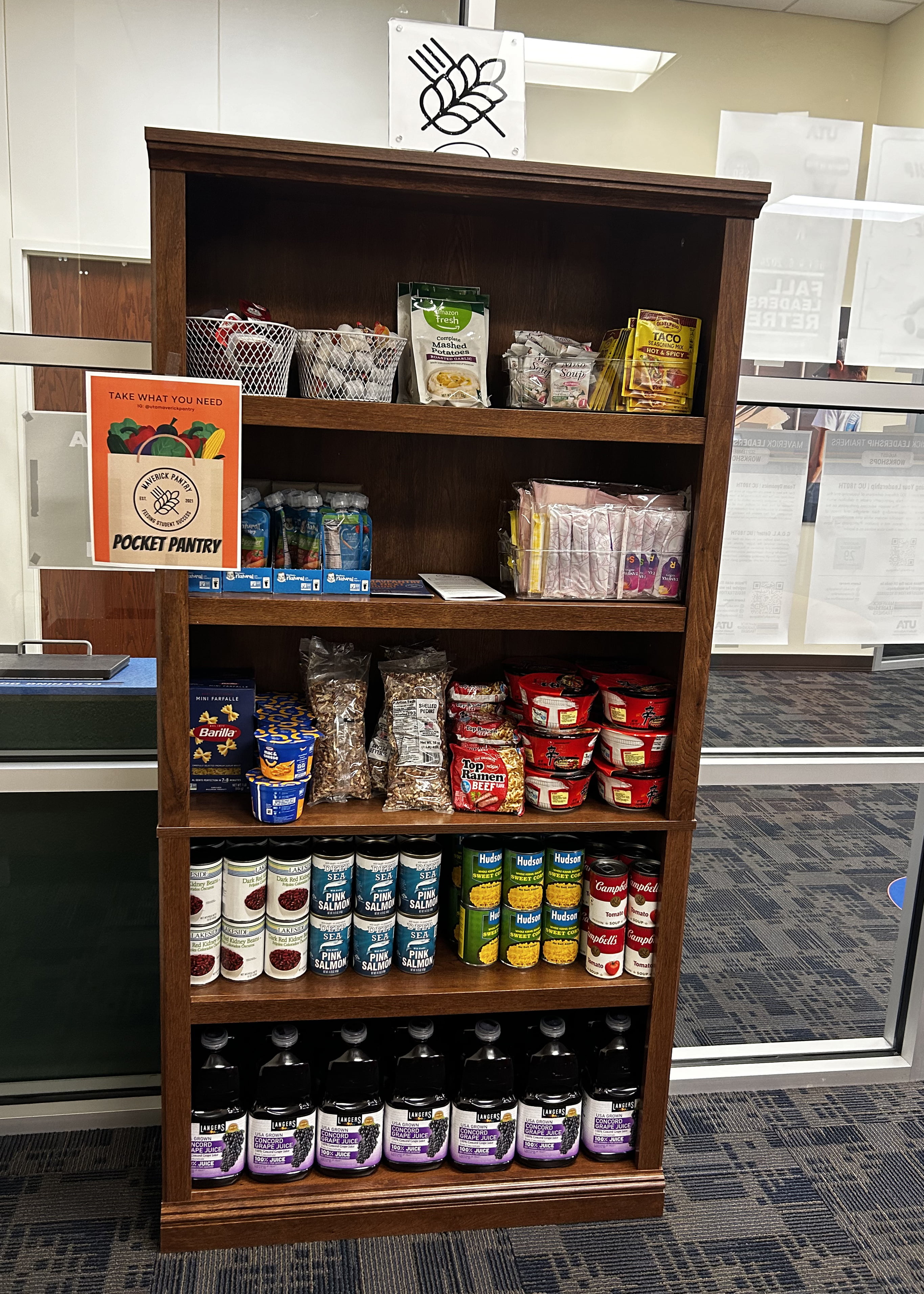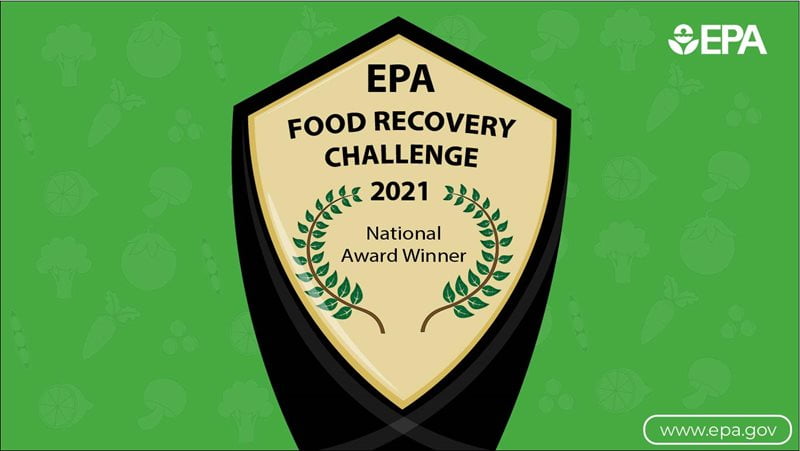Address:
601 W. Nedderman Drive, Suite 105
Arlington, TX, 76019-0108
Sustainable Dining
REDUCING FOOD WASTE
According to U.S. EPA, approximately 35 million tons of food waste was generated in 2010, with 97 percent ending up in landfills or incinerators. Food waste is an emerging issue with environmental, social, and economic impacts, and UT Arlington recognizes the importance of minimizing food waste on our campus. We approach this issue in multiple ways, including collaboration with our dining services provider, involvement in the EPA’s Food Recovery Challenge, and development of our award-wining composting program.
Maverick Pantry
The Maverick Pantry is open to UTA students, faculty, and staff who have UTA I.D.'s. The Maverick Pantry is committed to feeding student success by providing food and toiletry items. In 2023, the Pantry donated 38051.29 pounds of food.
The Maverick pantry also provides assistance to student parents, they have a specific section designated to baby and children food items. In addition to food and toiletry items, the Pantry also offers clothing through the Professional Development Clothing Closet, and cap and gown rentals for students who cannot afford to purchase these items for graduation.
Questions about support services or donating to the Maverick Pantry can be sent to EAF@uta.edu.


Pocket Pantry
Locations: Follett Leadership Center, Pecan Heights apartments and Student Money Management Services at the UAB.
Purpose: The pocket pantry initiative aims to help end food insecurity for students on campus. The pantries are meant to be a solution for students who need food but are unable to make it to the Maverick Pantry. They provide temporary relief to students in a food crisis.

U.S. EPA's FOOD RECOVERY CHALLENGE
UTA is one of 50 colleges and universities in the United States and among the first in Texas to become a partner in the U.S. EPA’s Food Recovery Challenge, a food waste reduction initiative within the EPA’s WasteWise program. Partners commit to at least a 5% increase from their baseline year in at least one of the three food diversion categories (prevention, donation, and composting) or to a combined 5 percent increase across all three food waste diversion categories. In 2014 and 2018, UTA was the recipient of EPA’s award for Leadership in reducing food waste.
MAVERICK DINING
Chartwells, UTA’s dining services provider, purchases 100% certified seafood, cage-free shell eggs, grass-fed beef, rBGH free milk and chicken, turkey and pork produced without the routine use of antibiotics. Chartwells’ Balanced Sustainability approach addresses four basic tenets of sustainable and socially responsible business practices: Eat Green, Build Green, Run Green, and Return Green. These practices include such programs as trayless dining service and Project Clean Plate, which promotes food waste awareness. Waste Not tracks, measures and reduces kitchen waste.
Ozzi Boxes
Maverick Dining is proud to participate in the Ozzi box program, which offers reusable to-go containers for both students and staff. Prior to its launch, Connections Cafe and Mav Cafe were distributing more than 200,000 styrofoam boxes annually. Since the program's introduction in 2022, Maverick Dining has successfully eliminated the use of over 600,000 styrofoam boxes. Currently, more than 1,400 students are actively using Ozzi boxes, contributing to a more sustainable campus.
The program is free for anyone with a meal plan. Students and staff without a meal plan are able to get an Ozzibox for $5 one-time fee.
Using an Ozzi box is very easy! Sign up for the box, use it to take food from the dining halls, rinse it when you're done and return it for a new one!
